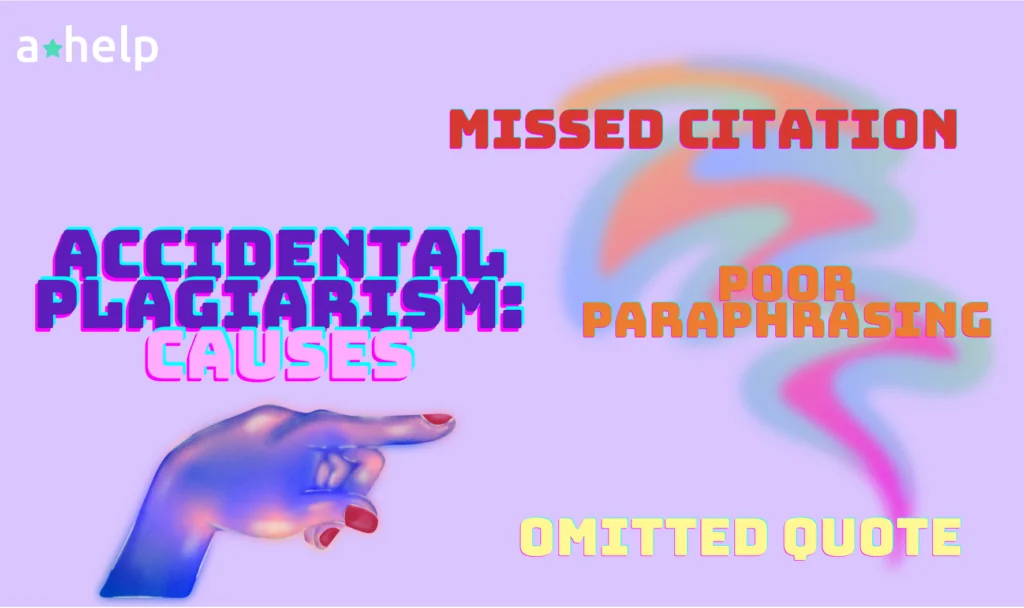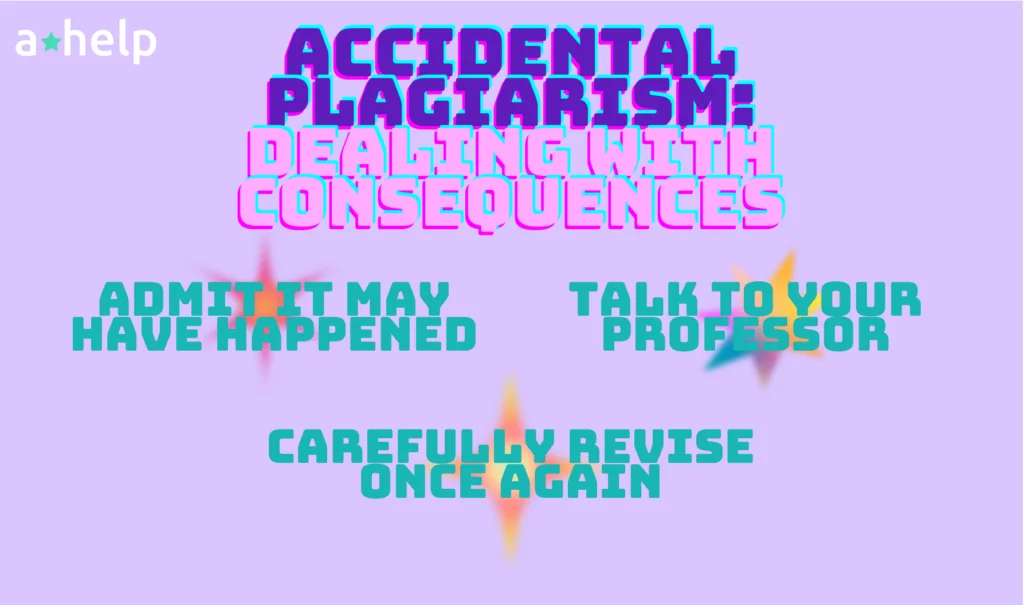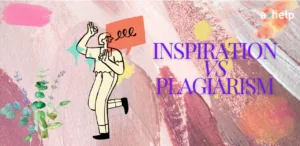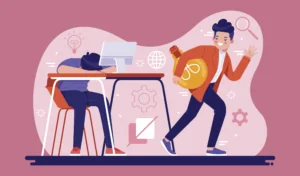You probably know that situation when you are writing a paper and reading through pages and pages of special literature and it all comes together in the end. And then you or your teacher decide to check it for plagiarism and BAM! you have 10-15% of plagiarized content. But how this could happen? You included citations, and there were references at the end of the page. Well, that, my guys, is accidental plagiarism. Reading through all these research papers, you subconsciously picked up some ideas and wrote them down as your own. Or you forgot to put down a proper citation near the quote that you took. Either way, you didn’t want to copy that content, but unintentionally, you did, leading you to commit accidental plagiarism.

✅ AI Essay Writer ✅ AI Detector ✅ Plagchecker ✅ Paraphraser
✅ Summarizer ✅ Citation Generator
How Accidental Plagiarism Can Happen?
One case is when you go through all those papers and so invisible (even for you) pick up the ideas that weren’t yours. However, this isn’t the only instance that can lead you to accidental plagiarism. One most common scenario, when accidental plagiarism can happen, is poor paraphrasing, where an attempt to rewrite someone else’s ideas remains too similar to the original, often because the writer lacks a clear understanding of effective paraphrasing techniques. Similarly, incorrect citation practices, such as using the wrong format or omitting citations altogether, frequently lead to unintentional plagiarism

The most popular mistake though, is when students falsely interpret certain information as common knowledge that doesn’t require citation, when, in fact, it does. This can also lead to the omission of quotation marks in direct quotes, which falsely presents the borrowed words as original. So, you better check twice what you’ve written and whether you didn’t read it off of somewhere else.
Aside from improper paraphrasing, committed quotations, and citations, unintentional self-plagiarism is also common. It happens when students reuse parts of their previously completed works without proper citation. And yes, even if you refer to an essay you wrote, you need to include both an in-text citation and a reference for it.
Let’s look at an example:
You wrote a paper using extensive notes taken from various sources. You forgot to distinguish between direct quotes and your own paraphrased thoughts in these notes. This will lead you to use phrases or sentences verbatim without appropriate citations.
In other case:
A researcher decides to paraphrase a complex theory but retain the unique structure and critical terms used by the original author. As a result, they create a text that is too close to the source. When run through a plagiarism checker, their work can receive around 10%-20% plagiarized content mark.
Errors in the application of the citation styles can also result in accidental plagiarism. Even if a writer includes an author’s name in the text, but won’t provide necessary details like publication year or page number, it will lead to incomplete citations. Any professor or even AI checking such work won’t recognize the sentence as cited material and therefore will mark it as plagiarism.
How to Dodge Accidental Plagiarism?
If you think that there’s no way you can keep track of all the nuances and make sure that no thoughts from other authors appear in your text without citations, think again. Because avoiding accidental plagiarism is perfectly doable. And we have a couple of recommendations that can help you do exactly that. All you have to do is follow them.
Create a Writing Strategy
Don’t just dive headfirst into the writing process – plan out your moves first. Start with taking diligent notes. And we mean, really take notes like you’re on a detective mission, noting down every clue (source) that could crack your case (essay) wide open. Next up, sketch out an outline. Write down which ideas you want to discuss in your work (maybe adding the possible literature to look into on the way). Now you can start drafting. Don’t forget to go through the sources you’ve read while you write just in case you may have skipped something important.
Cite As You Write
If you work with external sources, don’t put referencing aside till the very end. Coming from experience, it is much easier and quicker to cite everything as you write it down. So, if you found an idea, and included it in your paper, put the citation in the parentheses right then and there. Include the author of the work and the page you found the information on. If you work in Google Docs, you can leave any other additional information (as well as a properly formatted reference for the source) as a comment, attached to the sentence/paragraph. Believe us, by doing this, you will feel much relief when treating a list of references after everything gets done.
Use Plagiarism Checkers Beforehand
Yes, we know, your teachers/professors, will check your work for plagiarism in any case. However, doing it yourself, before handing in your assignments, going to do miracles for keeping your academic integrity and grades intact. All you have to do is find a reliable tool and then do a couple of checks on your papers. We advise you to run your work through a plagiarism checker not only when you already finished it, but also during the writing process. For example, you have written 5/10 pages of the essay – check them for plagiarism. Or if it’s a research paper, you can check it every few chapters.
Paraphrase to the Maximum
To avoid any unintentional slips of plagiarised content, you need to greatly paraphrase the original text. For this, read through the text a couple of times and try to write down what you got from it. You can first write it in your own simple words. Suppose your sentence doesn’t repeat the original formulation and still communicates the same idea. In that case, you can add a few scientific terms (if needed) and use them WITH a citation in parentheses at the end of it. If you are not sure whether your paraphrase won’t be marked by the plagiarism checker, you can go ahead and run it through our detection tool. Alternatively, you can also give it to our academic paraphraser and let it handle the job for you.
Revise & Proofread
Don’t leave that for your supervisor/professor – go through your paper yourself. Sit down, and read everything again. And if you are not a fan of reading through 40 pages in one sitting, you can proofread the paper as you write it. Finished 2 chapters? Revise them, paying attention to the quotes and adding citations. This way you can make sure that no aspect of your work goes unnoticed.
Consequences of Accidental Plagiarism
Even though you didn’t intend to break academic conduct, if you get accused of accidental plagiarism, you will still have to face consequences. What most probably will happen, is your mark will be lowered or you might be ordered to redo your assignment altogether. Of course, in more severe cases, there may be more drastic measures, such as suspension or expulsion, depending on the extent of the copied material and the institution’s policies. Just imagine working tirelessly on your academic journey, only to have a cloud of plagiarism accusations hang over your achievements—it’s a scenario no student wants.

Here, it’s important to build a dialogue with your professors. If you suspect you’ve slipped into accidental plagiarism, your best bet is to approach your professor directly. Most educators value integrity and are often willing to guide you through correcting the oversight, especially if they are familiar with your work ethic and honesty. Be open to trying and defending your work orally, showing your knowledge of the topic and literature you used to create your paper. Sometimes, if the percentage of plagiarized content is not high (up to 10%) your teacher may sit down and talk with you about how this could happen. Therefore you have to be ready to revise your work once again more closely and rewrite the places that were marked as plagiarized.
Now, there might also be consequences of accidental plagiarism outside the academic setting. Unauthorized use of copyrighted content can trigger severe legal repercussions, including fines or even court trials. For professionals, the stakes are high—plagiarism can lead to rejection of your work and a sullied reputation, which in competitive fields, could hinder your career and future growth prospects.
The Main Point
Accidental plagiarism is unintentional and it can be prevented. All you have to do is pay close attention to the sources you use during the writing process. And don’t be lazy when including those citations – you will still have to create them either way. So, you might just start writing them down from the very beginning of your work.
FAQ
Follow us on Reddit for more insights and updates.





Comments (0)
Welcome to A*Help comments!
We’re all about debate and discussion at A*Help.
We value the diverse opinions of users, so you may find points of view that you don’t agree with. And that’s cool. However, there are certain things we’re not OK with: attempts to manipulate our data in any way, for example, or the posting of discriminative, offensive, hateful, or disparaging material.